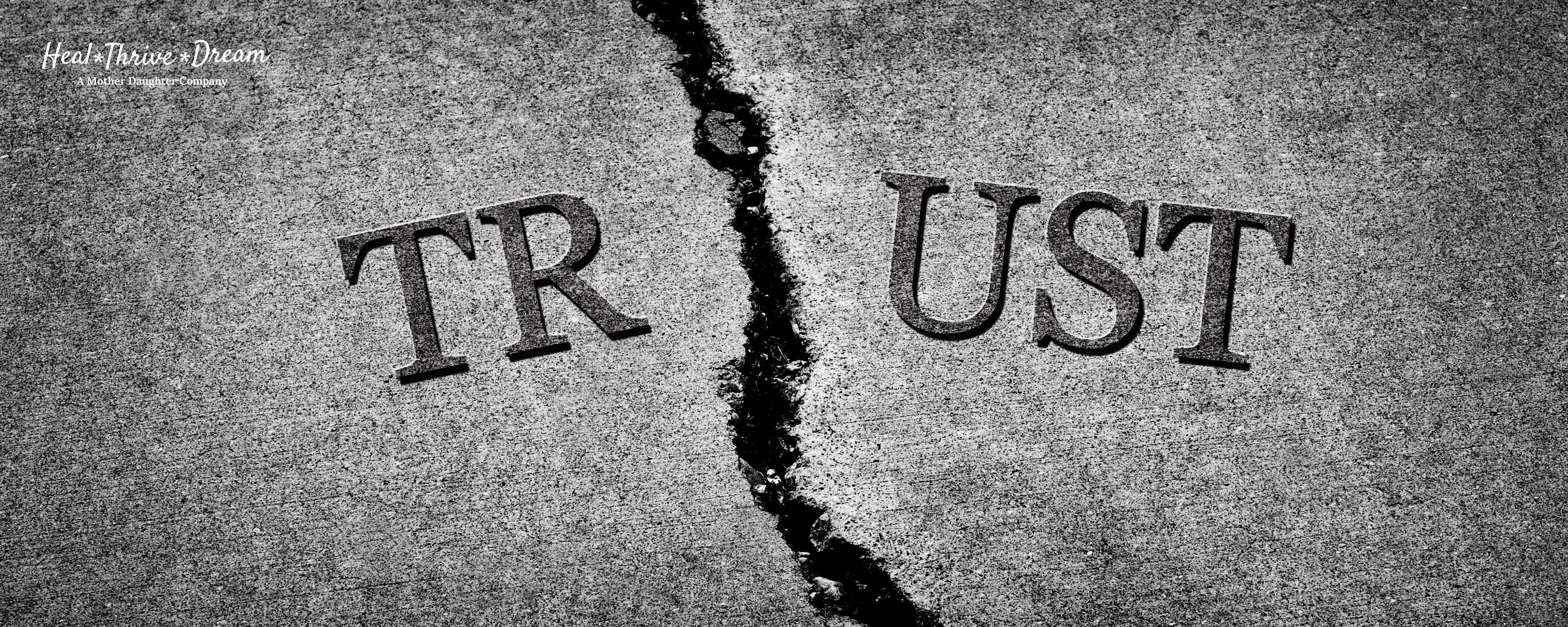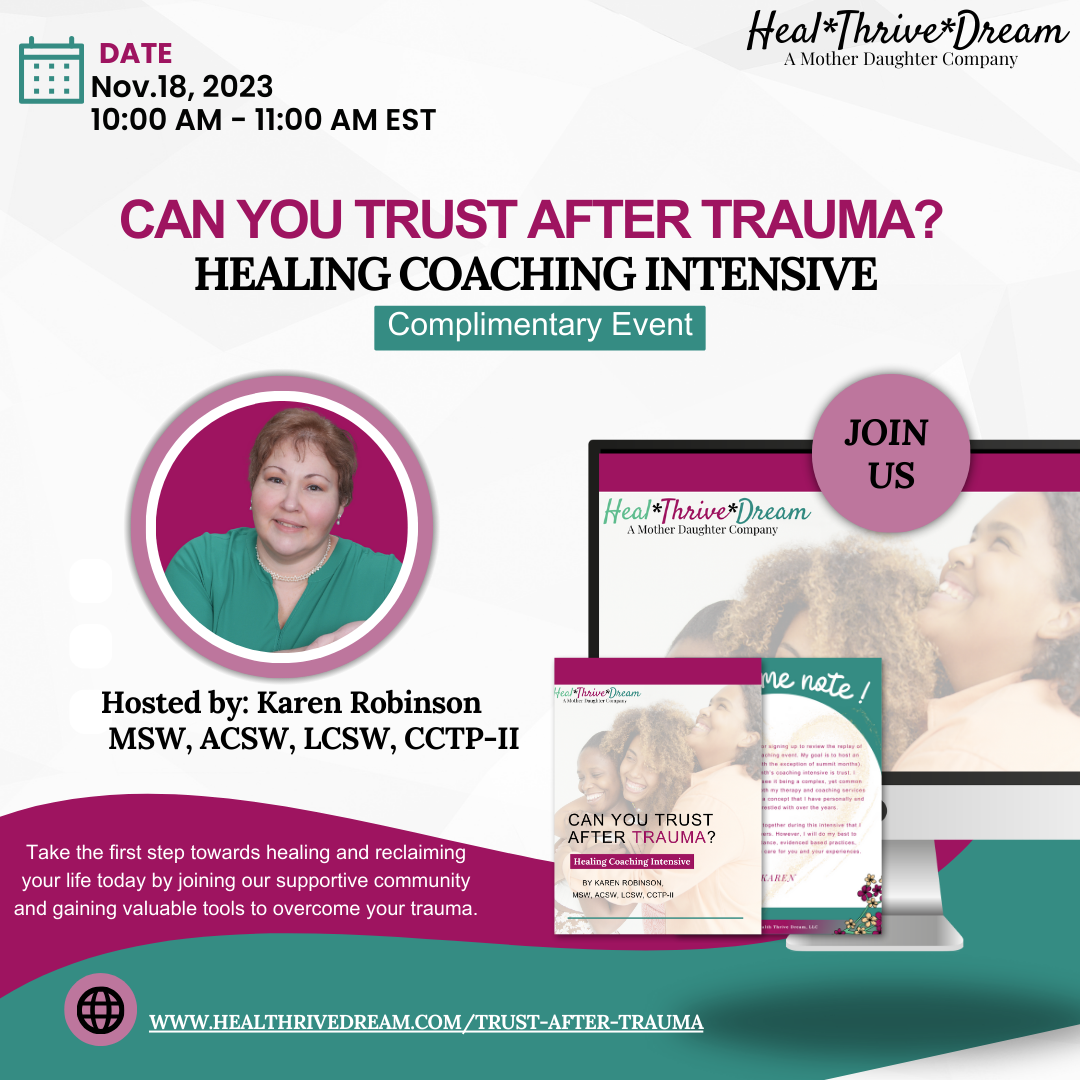It is no secret that trust is the cornerstone of healthy relationships and interactions. Whether it's in your personal life or professional endeavors, knowing if you can trust someone is crucial. In this blog post, I will explore the key indicators that can help you determine if someone is trustworthy.

Here are some questions to consider:
1. Are their words and actions consistent?
One of the signs of trustworthiness is consistency between what a person says and what they do. Trustworthy people align their words with their actions. If someone consistently follows through on their commitments and promises, it's a positive indicator of trustworthiness.
2. Is their communication open and honest?
Trust is built on transparency and open communication. People you can trust are willing to share their thoughts and feelings honestly. They don't hide important information or deceive you. They value open and respectful dialogue.
3. Do they appear to be reliable and dependable?
Trustworthy adults are reliable and dependable. They show up when they say they will, meet deadlines, and fulfill their obligations. You can count on them to be there when you need them.
4. Do they respect your boundaries and the boundaries of others?
Respecting personal boundaries is a crucial aspect of trust. Trustworthy individuals honor your boundaries and don't pressure you into doing things you're uncomfortable with. They understand and respect your limits and the limits of others.
5. Do they demonstrate empathy and compassion?
Trustworthy people demonstrate empathy and compassion. They genuinely care about your well-being and show understanding and support when you're facing challenges. Their actions reflect their concern for your feelings and needs.
REGISTER FOR FREE
complimentary Healing Coaching Intensive: "Can You Trust After Trauma?"
6. Do they consider the impact of their actions?
A trustworthy person considers the consequences of their actions on others. They think about how their decisions affect those around them and take responsibility for any harm they may cause unintentionally.
7. Are they consistent over time?
Trust is not built overnight; it develops over time through consistent behavior. Observe how someone behaves consistently in various situations and over an extended period to gauge their trustworthiness.
8. Do they admit mistakes and take responsibility for their actions?
Trustworthy individuals are not afraid to admit their mistakes. When they make errors, they take responsibility for them and strive to make amends. This willingness to acknowledge faults and learn from them is a positive sign.
9. Are they loyal to their family and friends?
They are loyal to their commitments and to the people they care about. They don't betray confidences or switch allegiances easily. Loyalty is a strong indicator of trustworthiness.
10. Have you considered checking out their reputation/character?
Sometimes, checking a person's reputation can provide valuable insights into their trustworthiness. Ask for references or research online to see if others have had positive experiences with them.
11. Are they an active listener?
Trustworthy individuals are active listeners. They pay attention to what you say, ask questions for clarification, and show that they value your perspective. This level of engagement fosters trust.
12. Do they consider the greater good?
Thinking about the greater good and how their actions impact the community or society as a whole is desired in healthy relationships. Do they make choices that align with principles of fairness and justice?
Determining if you can trust someone involves observing their consistency in words and actions, their commitment to open and honest communication, and their reliability. Trustworthy people also respect boundaries, display empathy and compassion, and take responsibility for their actions. Remember, trust is built over time and requires careful observation of a person's behavior and character. If you have been seriously hurt in the past, it may take even longer for someone to earn your trust. This is okay.
To learn more, attend my healing coaching intensive. Register below!

Complementary healing coaching intensive: Can you trust after trauma?
Please check out my other blog on this topic: Healing Your Heart After Trust Betrayal: Your Journey to Recovery

